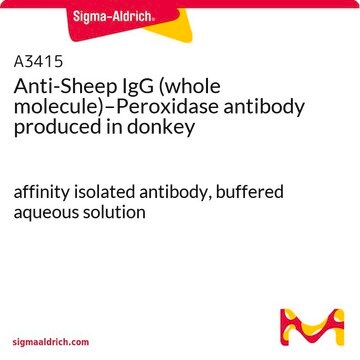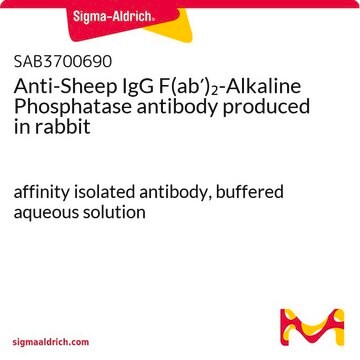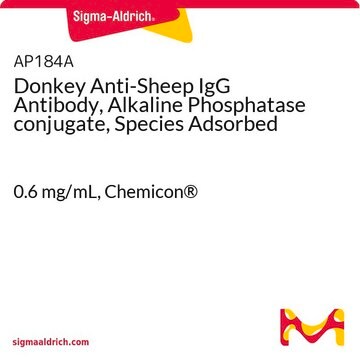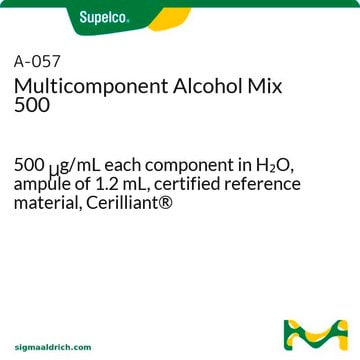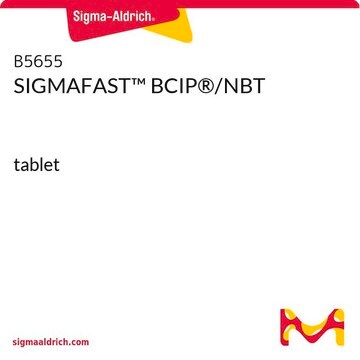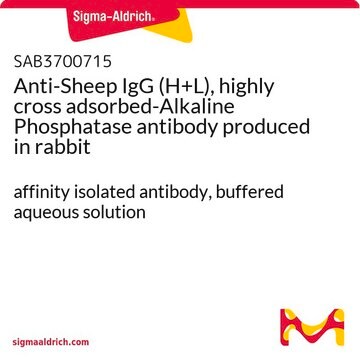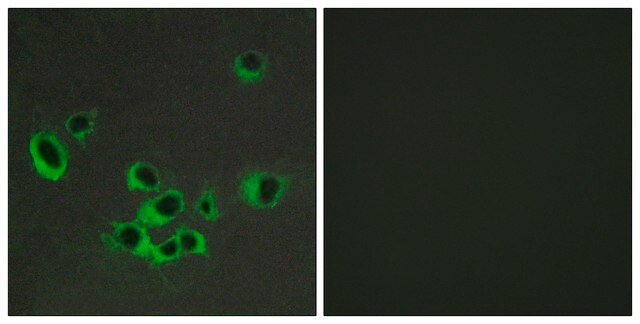A8062
Anti-Goat/Sheep IgG−Alkaline Phosphatase antibody, Mouse monoclonal
clone GT-34, purified from hybridoma cell culture
Synonym(s):
Monoclonal Anti-Goat/Sheep IgG, Monoclonal Anti-Goat/Sheep IgG–Alkaline Phosphatase antibody produced in mouse
About This Item
Recommended Products
biological source
mouse
conjugate
alkaline phosphatase conjugate
antibody form
purified from hybridoma cell culture
antibody product type
secondary antibodies
clone
GT-34, monoclonal
form
buffered aqueous glycerol solution
species reactivity
sheep, goat, bovine
should not react with
rat, canine, mouse, rabbit, guinea pig, chicken, horse, pig, feline, human
technique(s)
direct ELISA: 1:50,000
immunohistochemistry (formalin-fixed, paraffin-embedded sections): 1:40
western blot (chemiluminescent): 1:150,000 using total cell extract of chicken fibroblasts (10-20 μg per well)
isotype
IgG1
shipped in
wet ice
storage temp.
2-8°C
target post-translational modification
unmodified
Looking for similar products? Visit Product Comparison Guide
Related Categories
General description
Monoclonal Anti-Goat/Sheep IgG-Alkaline Phosphatase recognizes goat and sheep IgGs. No cross-reactivity is observed with human IgGs or IgGs derived from the following species: guinea pig, rat, horse, dog, chicken, pig, mouse, rabbit, and cat.
Immunogen
Application
Physical form
Disclaimer
Not finding the right product?
Try our Product Selector Tool.
Storage Class Code
10 - Combustible liquids
WGK
WGK 3
Flash Point(F)
Not applicable
Flash Point(C)
Not applicable
Personal Protective Equipment
Regulatory Listings
Regulatory Listings are mainly provided for chemical products. Only limited information can be provided here for non-chemical products. No entry means none of the components are listed. It is the user’s obligation to ensure the safe and legal use of the product.
JAN Code
A8062-.5ML:
A8062-VAR:
A8062-.2ML:
A8062-BULK:
Choose from one of the most recent versions:
Already Own This Product?
Find documentation for the products that you have recently purchased in the Document Library.
Our team of scientists has experience in all areas of research including Life Science, Material Science, Chemical Synthesis, Chromatography, Analytical and many others.
Contact Technical Service